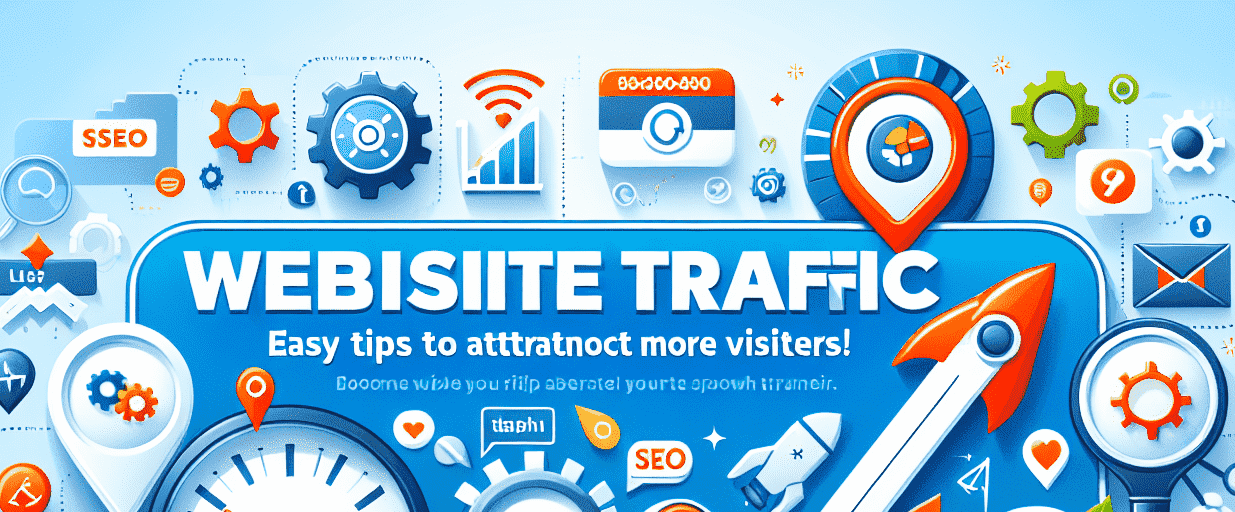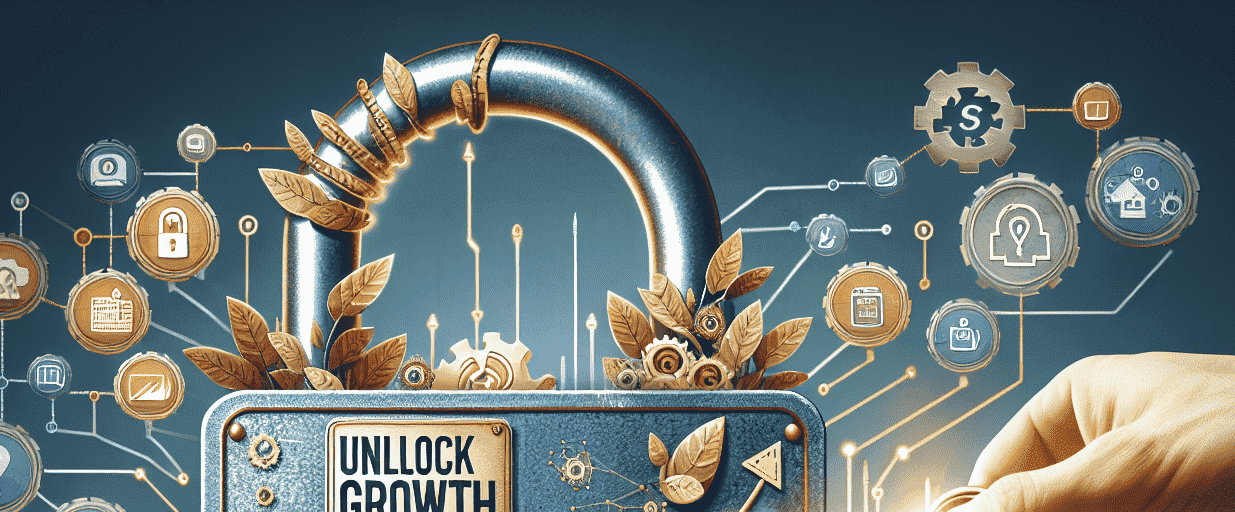CONTENTS
- Introduction
- Revolutionizing Finance with Blockchain
Product Development - Boosting Supply Chain Transparency with Blockchain
- Enhancing Security in Healthcare Systems Using Blockchain
- Simplifying Real Estate Transactions with Blockchain
Product Development - Shaping the Future of Gaming and NFTs with Blockchain
- Improving Data Security in Education Through Blockchain
- Conclusion

Revolutionizing Industries: The Impact of Blockchain Product Development
 Rohan Hall Published on: 2025-03-27T20:54:04.732000
Rohan Hall Published on: 2025-03-27T20:54:04.732000Introduction: How blockchain product development is Transforming Industries
Blockchain product development is reshaping various sectors, ranging from finance to healthcare, by employing decentralized ledger technology. Businesses experience remarkable improvements, enjoying faster, more secure, and transparent transactions. This transformation enables companies to cut operational costs, boost data security, and foster trust within business environments.
Some of the key advantages include:
- Increased Transparency: All parties in a transaction can see the same data, fostering trust.
- Enhanced Security: Blockchain employs encryption that is challenging to hack, protecting sensitive information.
- Reduced Costs: Cutting out intermediaries significantly reduces expenses for businesses.
- Improved Efficiency: Automating processes with smart contracts saves time and minimizes errors.
As one industry expert aptly stated, Blockchain is the future of how we share and manage data.
This innovative approach allows for seamless collaboration and integration across multiple platforms and industries. By integrating blockchain product development, companies can adapt to the digital age, offering pioneering solutions that were once unimaginable. Understanding and implementing these technologies is crucial for staying competitive in diverse sectors as we move forward.
Revolutionizing Finance with Blockchain Product Development
Transformative changes are underway in the finance sector, driven by advancements in blockchain technology. Central to this shift is blockchain product development, where applications and services are created using blockchain's secure, decentralized framework. This innovation enhances transparency, mitigates fraud, and streamlines operations, thereby boosting efficiency in financial transactions. As businesses adapt, they uncover previously unattainable opportunities to provide value-added services.
A prominent focus is on developing cryptocurrency applications, built on blockchain networks. These digital currencies facilitate secure, rapid, and borderless transactions, promising a future where currency is untethered from national boundaries. Additionally, smart contracts automate transactions independently, expediting processes and slashing costs in sectors such as banking, insurance, and supply chain management, ultimately enhancing efficiency.
Financial institutions are keen on integrating decentralized finance platforms into their offerings. These platforms enable users to conduct financial transactions without a centralized authority like a bank. As a part of the blockchain ecosystem, they provide enhanced security and transparency through immutable transaction records. Companies investing in tailored blockchain solutions can provide customers with secure and cost-effective financial management, significantly altering consumer banking behavior.
While the advantages are clear, challenges such as regulatory concerns, scalability, and interoperability persist for businesses pursuing blockchain product development. Nonetheless, many remain optimistic that strategic partnerships and technological advancements will address these hurdles over time. The expanding array of successful blockchain applications bodes well for a promising future, where protracted processes are streamlined, and security breaches reduced. Embracing these technological advancements is not just envisioning the future of finance but actively shaping it.
Boosting Supply Chain Transparency with Blockchain
Supply chain transparency holds a significant focus for many businesses striving to establish trust with customers by showcasing product origins and manufacturing processes. This is where blockchain technology, known for securely storing unalterable information, comes into play. Companies are increasingly adopting blockchain product development to maintain transparent and traceable supply chains.
Incorporating blockchain in supply chains allows businesses to monitor the journey of products from source to consumer. This technology securely records each product's path, reducing error and fraud risks, enhancing quality control, and enabling quick issue tracing. It fosters a trustworthy system by recording transactions and product data on a decentralized ledger accessible to any supply chain participant. Thus, every entity in the supply chain can access the same information.
Firms aiming to refine their supply chain transparency can leverage blockchain to control and verify product data. This approach reduces costs and enhances efficiency by cutting down paperwork and minimizing error rates. For instance, businesses can ensure product authenticity, as each item or batch possesses a unique, traceable record thanks to blockchain. As more companies adopt this technology, a safer and more reliable buying process emerges, benefitting manufacturers and consumers.
To effectively implement blockchain in supply chains, companies should prioritize specific components. Identifying the most beneficial areas for blockchain integration, such as shipping, production, or inventory management, is crucial. Collaborating with blockchain experts during the product development phase ensures smooth technology adoption. Additionally, educating all supply chain partners on using this system optimally is essential. As more businesses recognize blockchain's potential, shifts toward transparent and efficient supply chains will likely continue.
Enhancing Security in Healthcare Systems Using Blockchain
The adoption of blockchain technology has garnered significant interest in enhancing healthcare system security. Resembling a digital ledger, blockchain stores information across a computer network, making records nearly tamper-proof. Protecting patient privacy and ensuring data integrity are paramount when it comes to healthcare data. By integrating blockchain development into healthcare systems, organizations can safeguard sensitive information such as medical records.
Blockchain product development offers various advantages for the healthcare sector. A primary benefit is creating a secure environment to keep patients' medical records private. Blockchain ensures that once data is entered, it cannot be altered without affecting subsequent entries, dramatically reducing the risk of unauthorized changes. Consider the following points:
- A decentralized system decreases the likelihood of data breaches.
- Information is encrypted and distributed across numerous nodes.
- Patients can gain greater control over their own healthcare data.
Blockchain adoption in healthcare improves data transparency and interoperability. Healthcare systems often face challenges in sharing patient information across platforms. By standardizing data formats and using blockchain as a trust mechanism, healthcare providers can ensure seamless and secure information exchange. Enhanced interoperability leads to better coordination of care and improved patient outcomes.
Finally, incorporating blockchain in healthcare enhances efficiency. Employing smart contracts, which are self-executing with terms embedded in code, streamlines and automates processes. This reduces administrative overhead, minimizes human error, and leads to cost savings. Ultimately, the inclusion of blockchain technology in healthcare is paving the way for a secure and efficient future. As more organizations recognize its value, investing in blockchain product development becomes a strategic move for the healthcare sector.
Simplifying Real Estate Transactions with Blockchain Product Development
Imagine future real estate transactions that are as seamless as clicking a button. With blockchain product development, this vision is swiftly becoming reality. By harnessing blockchain's power, real estate transactions become faster, safer, and more transparent. Blockchain operates as a digital system that records and verifies transactions, preventing changes without universal approval. This process transforms a typically cumbersome procedure into a simple, manageable one.
The advantages of utilizing blockchain in real estate are numerous. Firstly, it diminishes the necessity for intermediaries like brokers and agents, cutting costs. Secondly, it accelerates traditional processes hindered by paperwork and manual checks. Thirdly, blockchain technology guarantees transaction security and transparency, allowing parties to trust their legitimate, fraud-free deals. Here's how blockchain revolutionizes real estate:
- Smart Contracts: Digital contracts that automatically execute when terms are met, simplifying the buying process and eliminating misunderstandings.
- Tokenization: This feature divides properties into digital tokens, representing ownership, enabling investment in real estate without purchasing entire properties.
- Faster Transactions: Blockchain expedites deal confirmation, often completing transactions within minutes rather than days.
As more companies investigate real estate blockchain solutions, the market can anticipate elevated efficiency and reduced entry barriers. With fewer manual procedures, buyers and sellers invest less time and effort. This streamlined process can result in competitive real estate prices and open avenues for new investors. As the technology progresses, new features may emerge to further streamline real estate transactions, marking blockchain as an exciting avenue for ongoing development.
In conclusion, as blockchain continues to mature, its role in simplifying real estate transactions expands. By utilizing smart contracts and offering fast transaction speeds, the impact is both significant and valuable for individuals and businesses. Making these processes more efficient, accessible, and secure, blockchain not only transforms real estate but also ushers in a new era of confident and easy property transactions. Embracing this technology is key to navigating the future of the real estate market with ease and opportunity.
Shaping the Future of Gaming and NFTs with Blockchain
The gaming world and NFTs (Non-Fungible Tokens) are experiencing rapid evolution thanks to the innovative momentum of blockchain technology. This exciting transformation creates fresh opportunities for gamers and developers. By incorporating blockchain, games evolve to offer unique, secure digital assets that players genuinely own. Through blockchain product development, developers are creating experiences offering players more control, enabling true ownership of in-game items and assets. This shift holds the potential to reshape the digital landscape, heralding exciting future prospects.
One of the most compelling aspects of blockchain's gaming impact is the concept of true ownership. Traditionally, items purchased or earned in games remain trapped and are non-transferable. Blockchain, however, allows players to genuinely own digital assets like characters, skins, or weapons beyond the game. NFTs ensure each asset is unique and verifiably scarce. Additionally, marketplaces are being established for buying, selling, or trading these unique items, potentially enabling players to profit while enhancing their gaming experiences.
Using blockchain in gaming also opens doors for new gaming economies. Developers focus on leveraging this technology to encourage player participation and reward creativity. Players can earn cryptocurrency through gameplay, task completion, or creation sales in virtual marketplaces. Blockchain-based games are no longer solely about entertainment but also hone skills and financial literacy. This new model allows gamers to enjoy gaming while developing a side income, elevating gaming beyond a mere hobby.
As blockchain technology progresses, so do gaming and NFT possibilities. Beyond fostering true ownership and new economies, blockchain bolsters security and transparency in gaming. Players can trust that their transactions and trades are secure, as blockchain is renowned for its robust transaction verification and recording methods. This enhances transparency, reduces fraud risk, and ensures fair play. As these systems evolve, its an opportune moment for those intrigued by digital frontiers to enter this expansive realm. The convergence of gaming, NFTs, and blockchain boasts unlimited potential, making it an exciting field for exploration and investment.
Improving Data Security in Education Through Blockchain
Bolstering data security in education is vital for protecting sensitive information like student records, financial data, and personnel files. Implementing blockchain technology offers an effective solution. This digital ledger system provides a secure, transparent method for data management and storage. Each data record encrypts into a block linked to the previous one, forming a secure, traceable chain. This innovation enhances the protection of sensitive information while maintaining trust with students, parents, and staff.
Beyond security, blockchain technology delivers benefits like efficiency and transparency. Within the realm of blockchain product development, tools and platforms are tailored to educational institutions' specific needs. These solutions simplify processes such as verifying academic credentials, tracking student performance, and managing digital identities. Transitioning from traditional data management to blockchain ensures streamlined, accountable data handling in schools.
Focusing on areas like access control, data integrity, and scalability is essential when exploring blockchain utilization in education. Access control ensures only authorized individuals view or modify information, and blockchains decentralized nature suits this perfectly. Moreover, it guarantees data integrity, ensuring information remains accurate and reliable. Lastly, achieving scalability is crucial for expanding this technology within educational frameworks over time. Addressing these areas allows blockchain to significantly improve education data security.
Integrating blockchain into educational systems future-proofs data security landscapes in schools and universities. With rising educational technology adoption and blockchain product development innovations, educational institutions have unique opportunities to modernize operations. As they explore blockchains potential, they lay the groundwork for safer, more resilient systems. Over time, these efforts protect data while fostering security and trust within the educational community.
Conclusion
In summary, blockchain product development is revolutionizing industry operations. From boosting transparency to assuring data security, the benefits are substantial and far-reaching. Multiple sectors are already experiencing significant process and operational enhancements.
The benefits of adopting this technology include:
- Enhanced Security: Blockchain ensures nearly tamper-proof records, safeguarding data reliability.
- Increased Transparency: All transactions are recorded and visible, fostering user trust.
- Improved Efficiency: Automating processes with blockchain reduces errors and accelerates operations.
To capitalize on these advancements, industries and individuals should actively explore blockchain integration in existing systems. Participating in workshops and seminars on blockchain technology enhances understanding. Collaborating with tech experts to develop tailored blockchain solutions can address specific business needs.
By embarking on these actions, you harness the potential of blockchain product development to transform your industry, ensuring you remain ahead in the digital age.
Contact Us
Reach out to us and let us know how we can help you.
Name*
Email*
Phone*
How can we help?*


